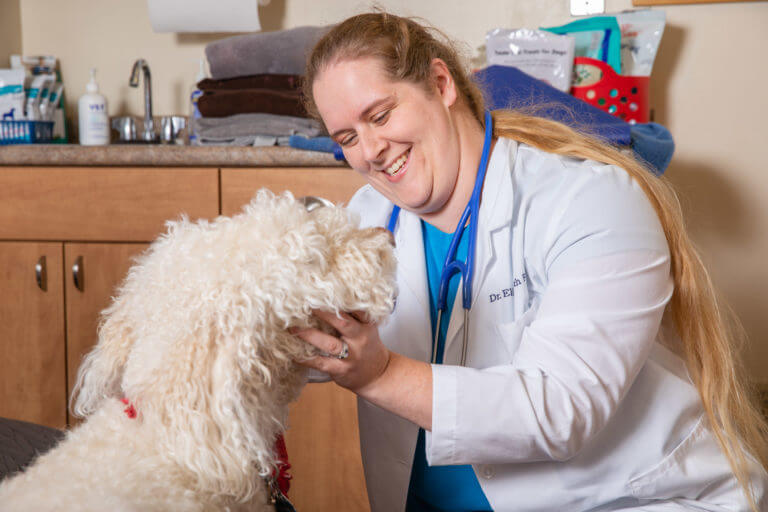“Summer may seem like a carefree time of year, but it’s also when our offices see the biggest spike in cases of Lyme disease in dogs.”

Summer may seem like a carefree time of year, but it’s also when our offices see the biggest spike in cases of Lyme disease in dogs. More time spent outdoors enjoying the warm weather means a greater likelihood that your pet could be exposed to ticks and therefore a greater risk of acquiring Lyme disease. Being proactive when it comes to protecting your pet’s health is the most effective way to keep your furry friend safe.
Lyme Disease is caused by an organism transmitted by a tick. Ticks look for a host they can feed on, and are often found in tall grass or heavily wooded areas. Ticks come into your environment through a host such as a mouse, bird, or deer. Parasitologists say when you see a single deer in a field – that’s a half a million ticks a year! Ticks attach to birds and can also detach falling off entering a new environment. Sadly ticks are here to stay. When the tick comes incontact with the pet, the disease can be transmitted in as little as a few hours.
Iowa is now a Lyme endemic state. The cases of human Lyme disease reports increase every year. Our dogs are just as likely or even more likely to be exposed. Annual testing (usually with a heartworm test) not only lets us know our choices for treatment or prevention but also serves as a sentinel to potential human exposure. Preventative care for your dog is also good health awareness for your family.
Infection may present itself in different ways in dogs. Many dogs that are exposed to the organism may never show symptoms. However when symptoms do appear, they may not occur until many weeks or months after the initial infection. Symptomatic dogs may have joint pain and fever resulting in lameness issues and lethargy. Long-term infection can lead to significant kidney damage. It is known in humans, that the disease can rarely be fully cleared from the body. All symptomatic dogs need to be tested and every dog should be tested for Lyme disease annually to check for asymptomatic cases.
In the past several months, our team has seen eight positive cases of Lyme disease in the Norwalk area alone. None of the positive dogs had received the appropriate preventative care. The old adage “An ounce of prevention is worth a pound of cure” is very true in the case of Lyme disease. The steps that need to be taken to keep your pet safe include checking your pets frequently for ticks after spending time outdoors, using a very effective tick preventative (oral Simparica or Bravecto) and vaccinating yearly. Ticks that are found on your dog should be removed as soon as possible. Tick medications for the treatment and prevention of tick infestation are vital to kill ticks prior to them transmitting the organism into the blood stream. Vaccinations may also prevent illness not only for those without the Lyme disease but also for those previously exposed.
At Family Pet Veterinary Center we strive to provide the best preventative care for our patients. We offer all of our patients the newest generation of oral flea and tick medication that is considered more effective than some of the more raditional topical applications. In addition we use latest and most effective Lyme vaccine that can even help minimize issues in pets that have been previously exposed to Lyme disease. Interestingly, this new vaccine is so different that hey are investigating using its technology for human Lyme disease prevention.
Don’t wait to keep your pet safe! Ask about preventative options and routine testing the next time you visit.
